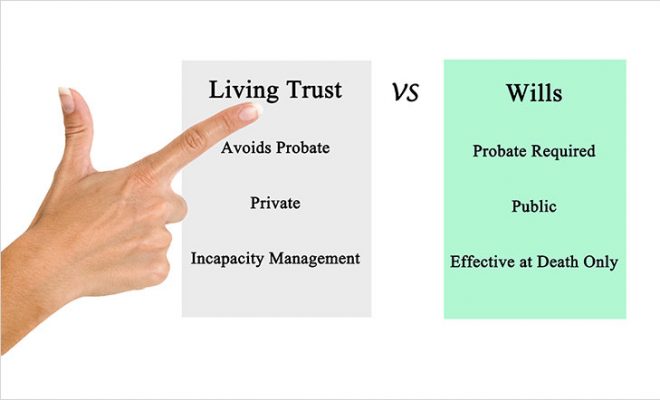Important Things to Remember While Making Changes to Your Will

Creating and securing a will is one of the most critical aspects of estate planning. However, it is not wise to draft a will and then forget about the document for the rest of your life. A will is a legal document that specifies your wishes regarding the distribution of your assets and funds after your death. A will can also become a guiding document in case of your absence, disability, mental incapacity, or any other condition that can cause loss of financial control. However, as imperative as it is to create a foolproof will, it is equally critical to update the will over time. It may be advisable to review your enlistments, assets, liabilities, etc., periodically to ensure that your will aligns with your present desires.
Here are a few important things to remember while making changes to your will:
-
Know the amendment laws
As specified, a will is a legal document bonded by the law. Hence, before you decide to make any modifications to your will, it helps to know the laws governing a will and its changes. Each state has a different letter of the law concerning the will. You can connect with a local estate planning attorney or a professional financial advisor to fully understand the rules of will amendment. This will enable you to ensure that the altered will is still legally binding under the law and will not be considered invalid because of the changes made in it. In some states, crossing some things out or adding a few provisions, even in legible handwriting, is not permissible. Moreover, a will that is partially typed and partially handwritten can be declared completely unacceptable, or the court might ignore the handwritten portions. Hence, to make sure your will serves as the ultimate document in your absence it is always good to follow the state’s estate laws.
-
Decide the alteration method
If you want to make changes to your will, after lawfully drafting and signing it in the presence of a witness, you have to decide on the mode of alteration. You have two options in this case. You can either opt for a codicil to your present will or make an entirely new will. In both cases, you would require your signature, as well as of two witnesses present. You can consider creating a codicil if the changes you want to make in your will are relatively small. Codicils are not addendums and are created to change existing items in the will, rather than adding new elements. Codicils are attached as a secondary document to your existing will, clearly specifying the changes you wish to make. Most U.S. states would require you to create and sign a codicil with the same rules that apply to a will. A codicil might be the right choice for you in instances, such as if one of the beneficiaries got married and changed their name, or if you wish to change the executor of the will. However, if you want to make significant amendments to the will, you can consider writing a new one instead. Writing a new will is one of the most feasible options in situations where you want to change your beneficiary, remove a nominee, add new assets, change the allocation of assets, etc. Revoking the old will and drafting a new one minimizes any possibility of confusion that could otherwise come due to an add-on document. But, the critical part is to ensure that your old will is not honored after your death. For this purpose, you can specifically mention in your new will that you are revoking all of the previous wills. You can also list all the wills by date and nullify their authority explicitly in the new will.
-
Incorporate life stage changes
As suggested, it is advisable to review and if needed update your will periodically. This becomes even more significant as you advance in your life at different life stages. Updating your will is necessary when you get married, have a child, buy a home, get divorced, or when your child gets married, among other things. But one thing that you must bear in mind when making any changes in this regard is to explicitly mention your new estate desires in the appropriate legal manner. This is specifically applicable if your marital status has changed. If you get divorced, you may want to remove your spouse from your estate. On the other hand, when you get married, you might want to add your spouse to the will. In some U.S states, like Alabama, Colorado, Kansas, Montana, Texas, Utah, and Washington D.C., a part or whole of the inheritance is automatically transferred to your spouse on your demise. If you do not wish for this to happen, you need to accommodate your current marital status in your will. This will give you the freedom to choose what you leave behind to your spouse and what you want to distribute to other loved ones. However, in some U.S. states, disinheriting your spouse completely in the will is not permitted. That said, if your spouse passes away, it may be better to write a new will than make changes to the existing one.
-
Consider picking a new executor
It is likely that at the time of creating a will, you would have appointed an executor or an estate administrator to read your will and ensure its true administration, in case of your death or incapacitation. However, when you make changes to your will, it is recommended that you reassess your decision and determine if the executor you previously selected still fits the purpose. You can check if your executor has behaved responsibly in the past and has proven their trustworthiness. Moreover, if you appointed a stakeholder of your estate as the executor, you can deliberate changing it. Ideally, it is good to keep a non-stakeholder of your estate as your executor. For this, you can consider choosing your bank, friend, or attorney. The objective is to pick a person who is ethical and is not easily intimidated by a complicated situation in the future.
-
Safeguard your will
Once you decide the mode of alteration and execute all formalities, it is good to recheck everything to make sure that the will and the modifications are legal. Keep your new or updated will signed and verified in a secure place that is safe from fire, theft, etc. Also, inform your attorney, bank, or a reliable family member or friend about the changes in the will and where it is placed.
To sum it up
Even though the process of will creation and modification is complex and demanding, it is advised to periodically revisit this critical estate planning document. By following the above-mentioned tips, you can ensure correctly updating your will and keeping it safe from any legal complications. You can also consult a professional financial advisor to frame an error-proof and clear will.










